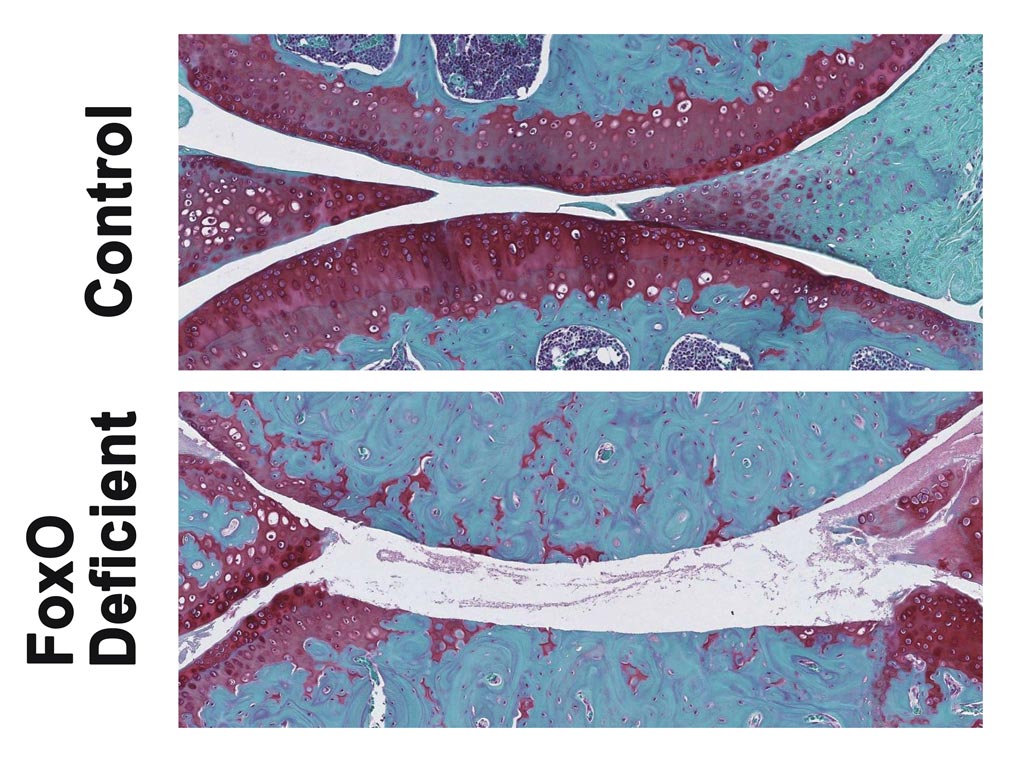FOXO Protein Deficiency Linked to Osteoarthritis Severity
By LabMedica International staff writers
Posted on 03 Mar 2018
A mouse model that had been genetically engineered to lack FOXO (Forkhead box) proteins in cartilage was found to exhibit worse arthritis with aging and increased cartilage degradation in response to surgically induced arthritis.Posted on 03 Mar 2018
Aging is a main risk factor for osteoarthritis (OA). FoxO transcription factors are known to protect against cellular and organismal aging, and FoxO expression in cartilage is reduced with aging and in OA. To investigate the role of FoxO in cartilage, investigators at The Scripps Research Institute (La Jolla, CA, USA) genetically engineered mice with FoxO deficiency in their cartilage tissue.

Image: Knee joints from control and FoxO deficient mice. The areas in red are joint cartilage, which is destroyed in FoxO deficient mice after treadmill running (Photo courtesy of the Lotz Laboratory, The Scripps Research Institute).
The investigators reported in the February 14, 2018, online edition of the journal Science Translational Medicine that these mice exhibited worse arthritis with aging and increased cartilage degradation in response to surgically induced arthritis. In addition, they expressed less lubricin, a protein that helps reduce friction in joints. The FoxO-deficient mice also had defects in autophagy and in mechanisms that normally protect cells from damage by oxidants.
FoxO1 and autophagy-related genes were found to be reduced in human chondrocytes from patients with osteoarthritis, and restoring FoxO1 expression reduced inflammatory cytokines and increased lubricin production.
"We discovered that FoxO transcription factors control the expression of genes that are essential for maintaining joint health," said senior author Dr. Martin Lotz, a professor at The Scripps Research Institute. "The housekeeping mechanisms, which keep cells healthy, were not working in these knockout mice. Drugs that boost the expression and activity of FoxO could be a strategy for preventing and treating osteoarthritis."
Related Links:
The Scripps Research Institute













